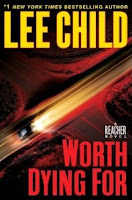I always wanted to own a bookstore and I figured in the time of the mega-store, a specialized shop might work. 'Histories & Mysteries' was my first idea, but, try as I might, I don't read much history. I read mysteries. Always. No matter what else I may be reading, or trying to read, there is always a mystery on my nightstand.
Thus 'Cops & Cozies,' named for the two broadest categories of mysteries -- police procedurals and the so-called cozy. I don't think the bookstore is ever going to happen so I am doing what I hope is the next best thing -- creating a place for me and other readers to talk about mysteries.
So I'll start. I am just about finished with Murphy's Law, the first in a series of mysteries set in turn-of-the-century New York City and featuring Molly Murphy, a young Irish emigrant. I discovered the author -- Rhys Bowen -- on a recent trip to the library, on the to-be-shelved cart. She's also written a 'cozy' series set in Wales and featuring a detective named Evan Evans.
I am enjoying it. It requires some suspension of disbelief -- Molly traipses from one end of Manhattan to the other without running out of steam or luck -- but it doesn't shy away from the gritty details of the time. People live in filthy tenements and most men only want to take brutal advantage of Molly. She's incredibly self-sufficient and brave but believable and not without fault. I love the historical details, including talk of Tammany Hall, but have no idea if the book is accurate.
Without giving away anything, the books starts with Molly's unexpected trip from Ireland to New York, where a passenger from her boat is murdered on Ellis Island. She's tangentially involved and decides she must help the police -- led by the attractive Daniel Sullivan -- solve the crime or else she may end up in the infamous Tombs herself.
I have about 40 pages left so can't say whether the resolution makes sense but so far so good -- everything about the murder and the chase makes perfect sense and little time is wasted on superfluous scenes or information.
I just finished A Corpse in the Koryo, another new author I discovered recently. (I can't remember how, I think through the New York Times' Marilyn Stasio, who reviews mystery/crime novels regularly in the Sunday Book Review.) The book is the first of four books in a series featuring Inspector O, a hamstrung detective in North Korea. The author is James Church, a pseudonym for a former American intelligence officer who worked in Asia and, according to jacket reviews, understands North Korea like an insider.
I was fascinated at the idea of a book set in North Korea, a country I know next to nothing about. The book is well-written and evocative. With few words, the author creates a world in which everyone is watching and being watched. No one can be trusted and the basics of life are in short supply. Inspector O, for example, is constantly is search of a cup of tea. Not a good cup of tea, but any cup of tea.
The book is cinematic. Despite being set in North Korea, I kept seeing Humphrey Bogart talking to Sydney Greenstreet or Claude Rains in conversations where the words had little to do with what was really being said.
But it took until the exact mid-point in the book for the plot to kick in. Before that, Inspector O goes from city to city, sent by cryptic bosses on seemingly meaningless missions that lead nowhere for both the Inspector and the reader. Once the plot takes off, the book is a quick and mostly compelling read. (I did skim a few parts, which is not a good sign and not something I like to do.) Still, I recommend Inspector O and will read the next one after a break and few other reads in between.
Next up could be any of the following: The Man Who Smiled by Henning Mankell because the great Masterpiece Mystery series starring Kenneth Branagh is showing it in mid-October; The Laughing Policeman, the fourth in the classic Martin Beck series set in Stockholm, the first three of which I read recently and absolutely loved; or The Friends of Eddie Coyle because I saw the movie starring Robert Mitchum a few months ago and because I'm on a mission to read classic mysteries.
So: what are your reading? What do you recommend? Leave a comment.










